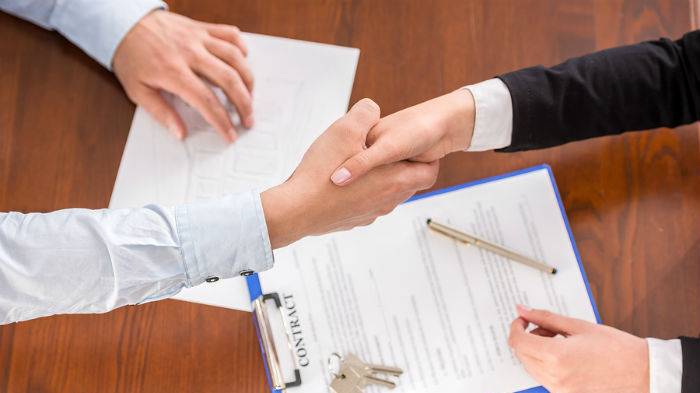With a rise in the cost of living, saving for a house can be difficult, especially if most of your pay is going towards your rent.
The good news is, there are ways to make owning a home achievable. Here we take a look at different ways you can save for a house to take you a step closer to owning your dream home.

What are the costs involved in buying a house?
Buying a house isn't just knowing how much your mortgage repayments might be. There are other upfront costs you'll need to pay as well, such as:
-
A deposit - the general rule is the more you can save for your deposit, the better, as you have a lower loan to value (LTV) ratio. A lower LTV could give you access to better mortgage rates, making your monthly mortgage repayments cheaper.
-
Stamp Duty - this is the tax you pay to the government for the ground your property is on. If you’re in England or Northern Ireland and you’re a first-time buyer, from 1 April 2025, you won’t have to pay Stamp Duty on a property price of up to £300,000. In Wales, you don't have to pay Land Transaction Tax on properties up to £225,000, and in Scotland the Land and Buildings Transaction Tax won't need to be paid for properties up to £175,000.
-
Valuation fees - this is the fee some lenders may ask you to pay to work out how much the house is worth. Some lender's ask for this fee so they know they aren't lending you more than the house is worth. It usually costs around £250, although some lenders may provide this at no extra cost.
-
Survey fees - to make sure the property is structurally sound, you may want to have a surveyor to check the property for any signs of issues, such as subsidence or damp. You can get different levels of the survey, and depending on what you go for, it could cost between £400 and £900.
-
Arrangement fees - also known as a completion fee, some lenders charge this fee for setting up your mortgage. You can choose to either pay this at once, or add it onto your mortgage. If choose the latter, remember that you'll need to also pay interest on top of it. Arrangement fees are typically around £1,000, but can be more than this.
-
Solicitor fees - a lot of legal work goes into buying a house, so this is where a solicitor is needed. They’re responsible for transferring ownership (conveyancing) and checking any legal issues that could cause problems. This cost can vary, usually ranging between £500-£1500, and some lenders may include legal fees in the mortgage deal.
5 ways to save for a house
1. Budget
A popular way to save is the 50:30:20. The rule was created by an American senator and bankruptcy expert, Elizabeth Warren.
The numbers refer to a percentage of your monthly wage, divided into different categories. Here’s how you break it down:
- The 50% is your bills. That’s rent, energy, broadband and phone costs. According to the rule, this shouldn’t exceed 50%. If it does, see if you can reduce your bills by comparing TV, broadband and phone deals with us.
- 30% of your income is your ‘wants’. This means social luxuries like meals out, drinks, concerts and cinema tickets.
- The remaining 20% is what you can then afford to put into your savings account.
If you're struggling to keep the remaining 20% to save, look into your monthly spending habits and see if there are areas you can cut back on. For example, try and bring coffee from home in a flask instead of buying coffee out every morning.
Another good way to keep on top of your budget is to use apps that track your spending. Most online banking apps provide this service. Here you can get a good overview of what you’re spending your money on the most.
There are also specific apps that are designed for budgeting where you can choose how much you want to spend, and how often. Some apps may take small amounts and put it into your savings without you even noticing. But be sure to check the app credentials before you download it.
2. Boost your savings
Depending on what type of savings account you have, you could earn quite a bit of interest back.
Usually, if you put your money away in a savings account that you can’t touch for a while you’ll benefit from a higher interest rate.
An example of this is a Lifetime ISA (LISA). You can open a LISA account if you're between the age 18-39, and you can pay a maximum of £4,000 each tax year into the account until you reach the age of 50. The government then adds a 25% bonus on top of your savings – the maximum bonus you can earn in a tax year is £1,000.
You need to have a LISA for at least a year before you can use the money. If you decide to use it for anything other than your first home or retirement, you lose the government bonus and will need to pay tax on your savings.
You can also get a fixed term savings account, where you get a fixed interest rate return on your savings for a set period of time. But the catch is, you can only access your savings once the fixed term ends.
If in doubt, we recommend speaking to a financial advisor.
3. Cut the cost of your bills
Paying attention to your bills and finding ways to cut the costs should help save you money. You can cut the costs of your bills by:
- Cancelling any unnecessary direct debits - do you have a subscription for a magazine that you never read? Or maybe you’re subscribed to one too many streaming services? £8 a month might not seem like a lot, but if you’re not using it, you’re losing out on £96 per year.
- Keeping the costs of your energy down - with an unpredictable energy market, now may not be the best time to switch. Instead, you can try to keep the energy bills down by submitting accurate monthly readings or setting a timer on your boiler.
- Reviewing your mobile phone contract - find out how much phone data you need to avoid overpaying, and make sure you're not paying for extra features that you're not using.
4. Consider your current living arrangements
According to Zoopla, the average cost to rent in April 2023 was £1,126 a month. That's £110 higher than last year. The cost of rent for some is rising higher than wage increases, which can make it difficult to save for a house.
Here are some ways you can change your living arrangements to help with saving for a house:
- Downsize your rented accommodation - this can reduce your monthly rent and outgoing bills.
- Rent out a spare room - if you have a spare room, see if your landlord will let you get a lodger. Mention that you and the new lodger would pay a slightly higher combined rent. This should still work out cheaper than renting by yourself.
- Look into co-living developments - these are flats with communal spaces like a bathroom, kitchen or living room. Living in one of these could save you some much needed cash, and the hassle of getting housemates together for a house share.
- Live with your parents - if you have the option, living with your parents might allow you to save faster. They might still charge rent, but it's likely less than a landlord would.
5. Get help from your family or friends
You might not have to do it alone, if you're fortunate enough to have someone who can help, many first-time buyers use family or friends to get on the property ladder.
Some of your options are:
- Gifted deposits -a gifted deposit is usually when a family member gives you a deposit and doesn't expect to be paid back. This is can reduce your borrowing amount and possibly your LTV ratio, which might help you access better rates.
- Joint mortgages - what's better than 1 income? 2! Or up to 4 in the case of joint mortgages. This type of mortgage means multiple people are responsible for the mortgage repayments. That means you can combine incomes so that you can borrow more, and it also helps you save for a deposit quicker as everyone contributes.
- Guarantor mortgages - a guarantor mortgage is when someone agrees to cover your mortgage payments if you can’t pay them. Your mortgage would be secured against your guarantor’s home, and if you can’t make the payments, your lender will use the value of your guarantor’s home to recover the costs.
- Family assisted mortgages - there are different types of family assisted mortgages but a common one is a springboard mortgage. This is where a family member or a friend can help you get a mortgage by using their savings as a security payment. You can borrow the full property value if you choose to go for a springboard mortgage as their payment acts as a deposit. It might work out well for the friend or family member too, as they get their money back may get a decent interest payment on their savings.
Get more information about mortgages
Government schemes to help you buy a home
If saving for a house is proving to be difficult, there are some government initiatives aimed to help people get past this. These include:
-
Help to Buy - Wales - the Help to Buy mortgage is an equity loan given only to residents in Wales, it has been discontinued in other areas of the UK. You contribute a 5% deposit, and the government loans 20% of the property price. The scheme is for new-build properties only, with a maximum property price of £300,000.
-
Right to Buy - The Right to Buy scheme is only available in England and allows council tenants to buy their home at a discount on the market value. The discount amount varies depending on whether you're buying a council house or flat, and the length of time you've been a public sector tenant.
-
Shared ownership - Shared ownership is a longer-term solution to owning a home. You have the option to put down a deposit between 5% and 15%. You then secure a mortgage to buy a share of the property from the housing association. The share is usually between 10% and 75%.







